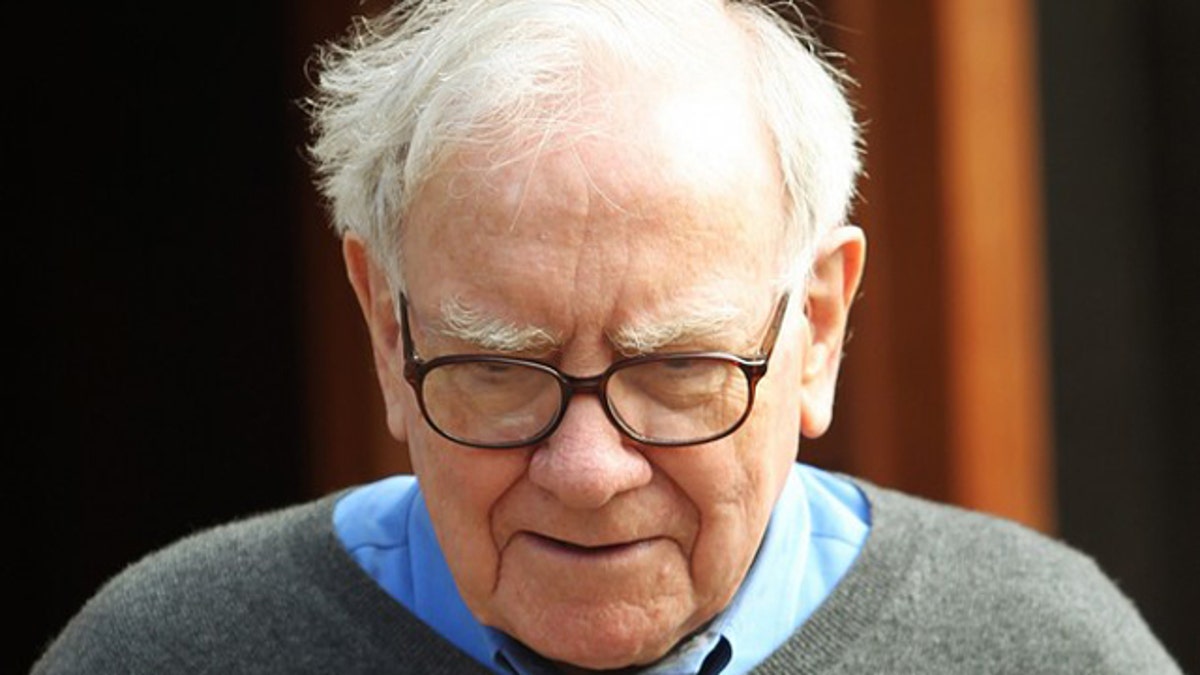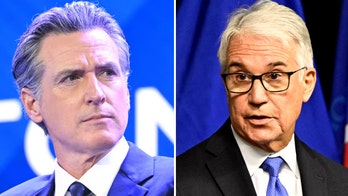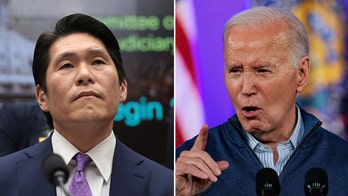
Berkshire Hathaway CEO Warren Buffett attends the second day of the Allen and Company Sun Valley Conference in Sun Valley, Idaho July 7. (Reuters)
President Obama’s proposed “Buffett Rule”-- which would force the wealthiest Americans to pay higher taxes to help cut the nation’s deficits -- has met its Republican match.
Republican lawmakers have introduced their own “Buffett Rule” that would allow billionaire investors like Warren Buffett who say they’re not paying enough taxes to voluntarily give more money to the federal government.
Under the legislation, authored by Sen. John Thune of South Dakota and Rep. John Scalise of Louisiana, taxpayers can donate at least a $1 to the Treasury fund for deficit reduction when they file their federal income tax returns starting next year.
“If individuals like Warren Buffett or President Obama are inclined to donate their own personal money toward paying down the federal government’s debt, they ought to have that right to do so voluntarily,” Thune said. “This bill would make it easier for those wealthy individuals who feel they are currently under-taxed to pay more to the U.S. Treasury above and beyond their current obligations, without raising taxes on America’s job creators.”
Obama’s “Buffett Rule” is part of his $450 billion jobs bill that was defeated in the Senate this week and will now be taken up in pieces. His version of the rule aims to stop millionaires from exploiting lower tax rates on investment earnings than what middle-income taxpayers pay on their wages – a cause that Buffett, the chief executive of Berkshire Hathaway, has been long advocating. But Republicans have fired back, saying anyone who feels undertaxed should just write a check to Uncle Sam.
“It’s ironic that President Obama is using Warren Buffett as a poster child for raising taxes at a time when the federal government is saying Berkshire Hathaway hasn’t even paid their own taxes,” Scalise said. “If Warren Buffett truly feels that he’s not paying enough in taxes, he doesn’t need a change in law to put his money where his mouth is, he can send his check for a larger amount to the Treasury today.”
Buffett has argued that Congress should raise the tax rates on Americans making more than $1 million, including dividends and capital gains. He says he has never seen in his 60 years of working with investors anyone pass up a good investment because of the tax rate.
“My friends and I have been coddled long enough by a billionaire-friendly Congress,” he wrote in a New York Times opinion article in August titled, “Stop Coddling the Super-Rich.” “It’s time for our government to get serious about shared sacrifice.”
Obama has repeatedly cited Buffett’s argument as he has traveled the country in recent weeks pushing his jobs bill. But Republicans, who refuse to consider any tax hikes, accuse Obama of waging class warfare. In recent weeks a protest movement known as Occupy Wall Street has spread across the country.
Critics note that the nation’s wealthiest pay more in taxes than the middle class or the poor.
According to the Tax Policy Center, households making more than $1 million this year will pay, on average, 29.1 percent of their income in federal taxes while a household making between $50,000 and $75,000 will pay 15 percent of its income in federal taxes.
The Republican version of the “Buffett Rule” has little chance of getting past a Democratic-controlled Senate or the veto pen of the president. But supporters are still seizing on its message.
“Sen. Thune should be commended for solving Warren Buffett’s seemingly intractable problem,” said Grover Norquist, president of Americans for Tax Reform, a powerful conservative group. “Thanks to Sen. Thune’s leadership, Mr. Buffett soon will be able to simply write a check when he thinks the government can spend his money better than he can.”




